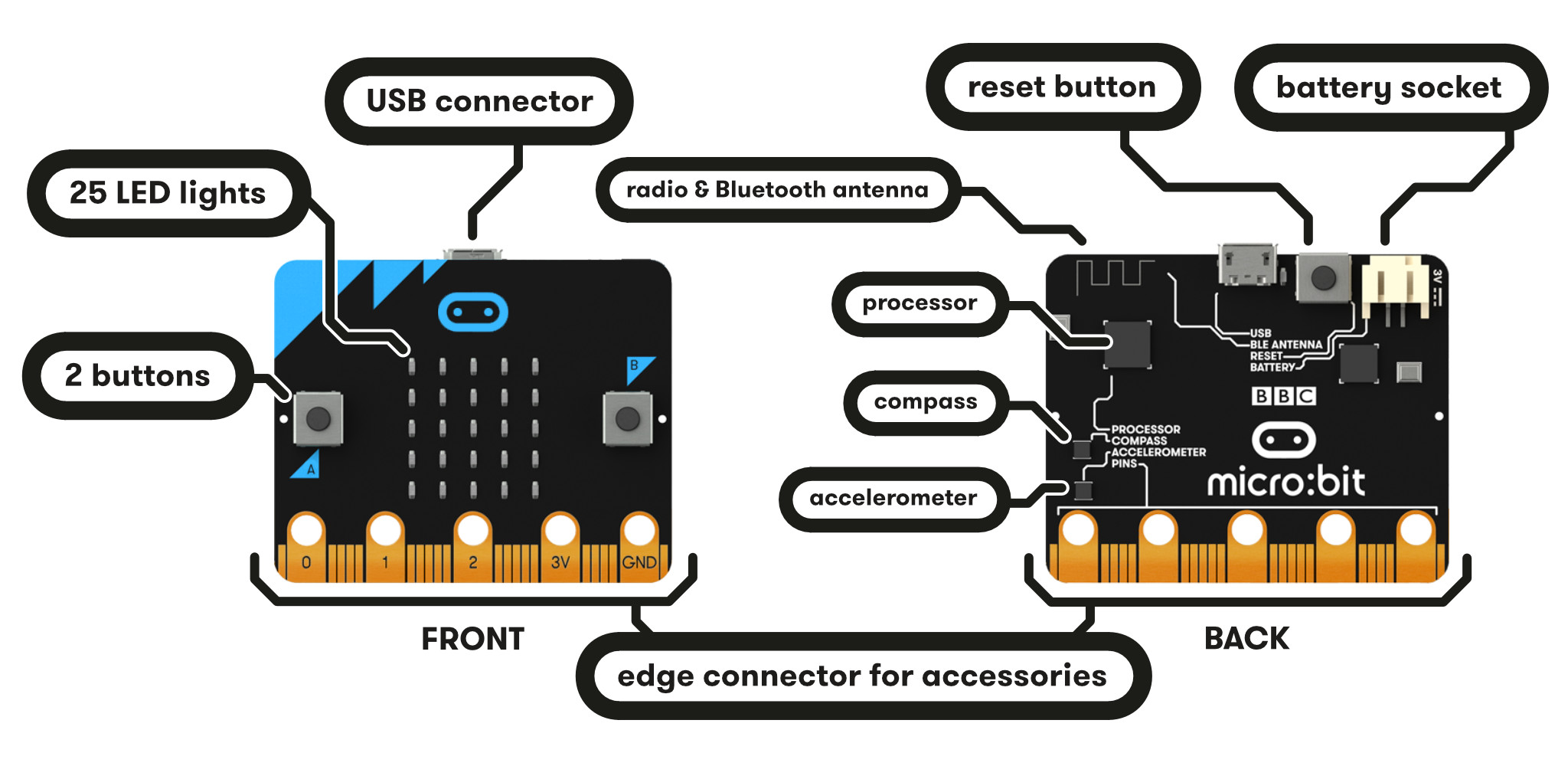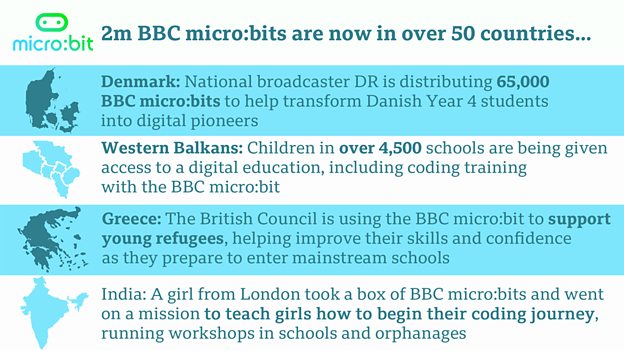Why do we love the BBC micro:bit?
Designed for education - The BBC micro:bit was designed from the ground-up for education. In fact, every year a micro:bit is given to every year 7 student in England and Wales, year 8 student in Northern Ireland and S1 student in Scotland. Read more here.
Low Cost - The BBC micro:bit sells for under $15.
Multiple Programming Options - The BBC micro:bit works with multiple programming options including Scratch, MakeCode, MicroPython, ArudinoIDE, Javascript to name a few. Since many of these are web based, it does not require additional drivers and can be used with almost any web enabled device.
Small, easy to use and packed with features.
The micro:bit is smaller than a credit card, has 25 LEDs, 2 buttons, accelerometer/gyroscope/compass, temperature sensor, light sensor bluetooth and 25 pins to program to.
So, what’s the catch?
In order to maintain low cost, the BBC micro:bit has some design limitations that have spawned a wide number of add-on board solutions. Power management and access to the pins are the most common challenges with using the board as-is.
What makes ours different? Our solutions are designed with educators in mind: how can students get the most out of the micro:bit and how can teachers run their classroom project as efficiently as possible. All our designs are around the “Low Threshold, No Ceiling, Wide Walls.”
Low Threshold - Physical computing is engaging because it makes coding real and tangible. How can we make it as easy as possible to jump right into coding? In a nutshell: Onboard Power, Onboard components and easier access to the ports. Both the bit:buddy and bit:booster have onboard power and allow for multiple projects right out of the box. When you are ready to extend the project, that is easy as well.
No Ceiling - Projects should only be limited by your imagination. Both the bit:booster and bit:buddy make it easy to explore a wide spectrum of physical computing projects without requiring an engineering degree or endless patience.
Wide Walls - Where do you start? There’s a wide range of support and curriculum for the micro:bit that works with our products but if you are looking for a project that provides a unified framework for a broad range of learning, try the Very Useful Monster.



